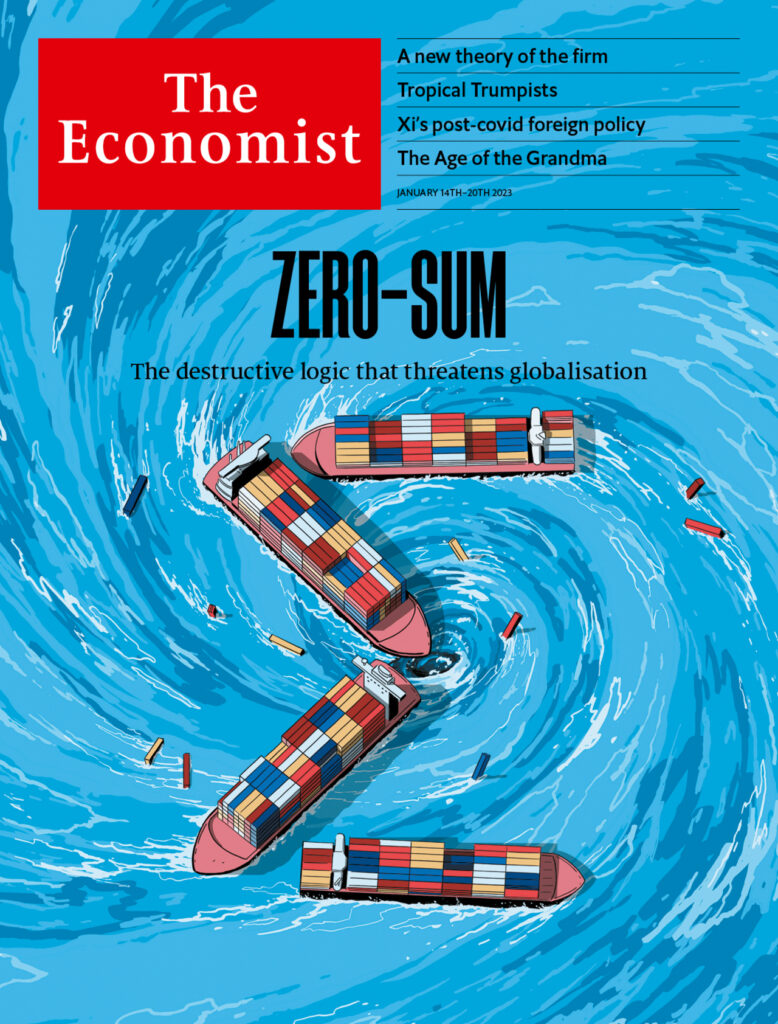
After Jeremy Corbyn, Boris Johnson and Liz Truss, and the post-2017 version of Theresa May, most Britons have been yearning for a time when their main party leaders were ordinary competent politicians. But now Sir Keir Starmer has taken over the Labour Party and Rishi Sunak the Tories, that day has come. Both men had less political experience than their leadership positions normally warrant, and accordingly had uncertain starts, but now both are now hitting their stride. It promises to be a fascinating, if unedifying, contest, at least for those who follow politics as a spectator sport without worrying too much for the consequences for the country.
Sir Keir matured first. Indeed earlier this year he decided that he had to hammer Mr Sunak’s apparent weakness as hard as he could. I was uncomfortable with this: it didn’t matter to Sir Keir whether the attacks were well grounded or not – he ruthlessly went for the man rather than the policy. It seems unpatriotic to keep undermining your country’s prime minister just for the hell of it. But that’s politics – Mr Sunak would not hesitate to do the same if the roles were reversed.
Mr Sunak has survived this, and it is Sir Kier who has lost momentum as a result. The turning point came with his renegotiation of the Northern Ireland Protocol that had been spoiling relations with the European Union. This was a thoroughly competent piece of statecraft that moved things along. Few doubted that this deal was the best that Britain could get – and opponents seemed to be the sort that did not really want resolution at all. Better still, Mr Sunak was successful in selling this to his own party. Only 22 MPs voted against it in parliament – with many formerly troublesome Eurosceptics lining up behind Mr Sunak. That both Mr Johnson and Ms Truss were amongst those 22 underlined just how little threat his predecessors now pose. The deal has not convinced the Democratic Unionist Party to rejoin the Stormont government – but most observers thought that nothing was going to pass that test that would not cause even bigger problems in the province. In UK terms the DUP is very isolated.
That’s a good start. Mr Sunak had earlier set out five priority areas for his administration: inflation, NHS waiting lists, growth, national debt and “small boats” – the influx of illegal migrants across the Channel. It was widely assumed that his specific pledges on these issues were designed to be easy to pass – but with the economy poised on an awkward knife-edge, this should not be assumed. He needs to do two things if he is to a reasonable chance of winning the next general election, widely assumed to be in the autumn of 2024. The first is to win back the Brexit-voting, conservative working class and lower middle class voters that flocked to the party in 2019 – many of these are telling pollsters that they will abstain or vote for a protest party such as Reform UK. To these he needs to show that he is true to the Brexit vision, and especially on immigration; these voters, who tend to be older and retired, may be not so sensitive to the economy, but they are sensitive to the NHS and crime. The second thing is to win back or win over Labour- and Liberal Democrats-inclined floating voters with a less conservative political outlook, who generally voted Remain, but who were put off by Labour under Mr Corbyn. For these voters a display of competence is critical.
Sir Keir Starmer starts ahead, with substantial poll leads, following the Johnson and Truss fiascos. He may also have had a stroke of luck in Scotland. Scottish seats used to be critical to Labour’s success, but the party was wiped out there by the SNP in 2015, and then they struggled against resurgent Conservatives. But now the SNP seems to be imploding after Nicola Sturgeon’s resignation as leader. To watchers from south of the border this episode has all the hallmarks of a bloodletting and collapse after a long period of imposed stability – all Britain’s main parties experience this from time to time. Things are always a bit different in Scotland. Pro-independence voters don’t have many convincing alternatives – Alba and the Greens each have issues of their own. But the case for independence will have taken a temporary knock, and Labour is prevailing over the Conservatives in the anti-independence camp, with a stronger appeal to independence-waverers. A resurgence by Labour there would be doubly good news for Sir Keir. It makes winning an overall majority in the UK much easier for him, and it reduces the risk of the SNP holding the balance of power in a hung parliament – which would be a nightmare outcome, and a prospect that might scare the voters too. But for all this lead, Sir Keir knows that a lot can go wrong, and that the electoral system is in many ways tilted against him.
A lot of how the battle will play out is obvious. Labour will attack the government for incompetence on just about any issue that comes up, regardless of how justified the complaint may be. The Conservatives try to divert the blame onto world events and cast doubts on Labour as being soft lefties. Most of this be just noise to voters and unlikely to change minds. Beyond this I think there are two issues where voters’ are more open, and which could cause a shift in balance between the parties: tax and immigration.
Tax-and-spend arguments are as close as we’ll get to a debate over economic strategy. We will not get any kind of sensible discussion of economics, of course – even though there is an interesting debate to be had between the parties. Labour’s approach tends to focus on macro-economic policy. The priorities for them are ensuring that aggregate demand is sufficient to ensure low unemployment and decent bargaining conditions for workers, and getting decent headline figures for investment. The Tories rather focus on microeconomics – the idea that prosperity must be based on the efficiency of businesses and public agencies and how hard we work – where the question of incentives and competition loom large. Instead of that, the Conservatives will accuse Labour of wanting to dramatically increase public spending, leading to higher taxes and a less productive economy. They remember fondly John Major’s success with the “Tax Bombshell” campaign in the last week or so of the 1992 general election, when fortunes suddenly turned in their favour. The problem for Labour is that almost all public services are crying out for more spending, and it is very hard not to criticise the government without suggesting a substantial increase. Which leads to the question how you pay for it. This question is dealt with as if a nation’s budget operated like a household one, which is far from how it actually works. But it is too hard to try to explain that extra public spending might simply lead to better use of the economy’s resources and higher wages, and not necessarily to higher taxes. This argument is in any case a lot shakier when inflation is taking hold, as it is now.
The obvious answer is for Labour to try and sell the idea of higher taxes in order to have more effective public services at a time when the ratio of working people is falling. The tax burden may be at a historical high as a proportion of national income, but it is still moderate by European standards. There is even polling evidence that this has majority support. But Labour still carry the scars from 1992 (and indeed 2019) when the Conservatives successfully scared many floating voters with the prospect of higher taxes. Instead they want to follow Tony Blair’s and Gordon Brown’s strategy of 1997 of promising to hold back taxes and spending – and then increase both after the second term, when people are more used to the idea of a Labour government. Meanwhile they will try to dream up a number of painless taxes on other people to pay for selected areas of higher spending – non-doms, oil companies and so on. Against this the Conservatives will try to promise that better public services can come without higher taxes; since many voters are under financial stress, they will not relish the prospect of higher taxs. The arguments of both parties are unconvincing, and it is hard to see which way the public mood will swing.
Neither party is convincing on immigration either. There is panic over the number of people trying to cross the Channel in small boats, and then claiming asylum. Actually this is a real enough problem: overall numbers may be modest by the standards of international refugee flows, but it is placing public resources under pressure, and and it is a bit of a slam-dunk for organised crime. Immigration is not a top issue for voters according to opinion polls in the way it has been in the past. But both parties know that with the chaotic situation in the Channel, it can be pushed up the agenda easily enough. Housing the refugees (and others) while their claims are processed is creating stresses right across the country. Mr Sunak knows that he needs to do two things. To motivate conservative working class voters (and a lot of conservative middle class ones come to that), he needs to promote a tough line that will be hard for Labour to follow. The second thing is that he needs to make a substantial dent in the numbers making the crossing – to demonstrate competence, and woo back more liberal floating voters, as well as convincing those conservative voter that he isn’t just grandstanding. The first of these things is going well enough. The Home Secretary makes a good hate figure for liberal types, who make all the noise that Mr Sunak needs to demonstrate his toughness. But few understand how he is going to achieve much in the way of actual results, though. The much vaunted scheme to deport migrants to Rwanda does not look remotely adequate to deal with the sort of flows that we are seeing, even after the government has bulldozed the legal objections.
The Tories can sense Labour weakness here. Sir Keir has one sensible idea – to make legal routes for refugees more accessible, and the processing quicker, and so reduce demand and the numbers having to be put up in temporary accommodation. This means increasing legal flows of refugees, which will annoy many – but it does tackle the disorderly aspect of the current situation, which is what is most dangerous. But it is a stretch to think that this will stop the flow of channel boats by itself. The incentives for people traffickers remain strong. The only thing that might work there is rapid return of the migrants to France or elsewhere in Europe. But why would the Europeans agree to that? Only a substantial change to legal routes for refugees might possibly unlock that. that would be too brave.
It is hard to discern public attitudes to immigration post Brexit. There are two competing visions. The first is the Japanese one: that any immigration disturbs the cultural identity of the country and undermines social cohesion – as well as placing stress on housing and public services. So numbers of immigrants should be kept low, and definitely reduced. Or there is the Canadian/Australian vision, which accepts the desirability of substantial flows of immigrants, including refugees (at least in the case of the Canadians) – but wants the flow to be orderly – and abhors the idea of queue-jumping by unregulated arrivals. The small boats are abhorrent to both – but there any agreement ends. Both visions seem to have substantial support, and it is hard to see which way the zeitgeist will go. Labour seem to be more clearly pitching for the Australian/Canadian position, which is popular amongst the immigrant communities themselves – while the Conservatives are trying to play both visions at once. And as with tax, it is hard to see which side will end up on top.
There is a third issue which has the potential to sway voters: the environment. This covers not just the mission to reduce carbon emissions, but also threats to the countryside through habitat loss and pollution (and especially sewage overflows). The government is under attack for competence, as well as its heart not really being in it. But Mr Sunak has left it out of his five key targets – so presumably his party’s polling shows that this is not a critical issue. Labour are making a lot of the idea of green growth – but this may be more to motivate their core supporters than to win points over the opposition.
It will be an interesting contest. My guess is that sir Keir will prevail decisively. Whenever I try to write “Sunak” my computer changes it to “sunk”; I think he is, such is the low regard his party is held in by the voters..








